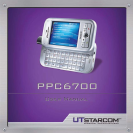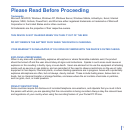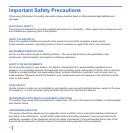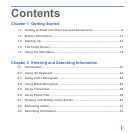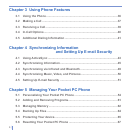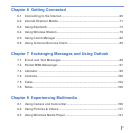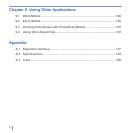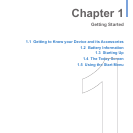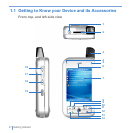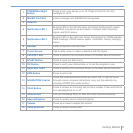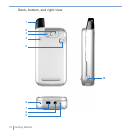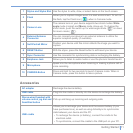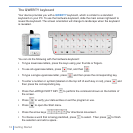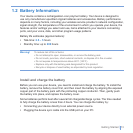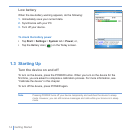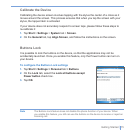
2 |
Important Safety Precautions
When using this product, the safety precautions below must be taken to offset possible legal liabilities and
damages.
ELECTRICAL SAFETY
This product is intended for use when supplied with power from the battery. Other usage may be dangerous and
will invalidate any approval given to this product.
SAFETY IN AIRCRAFTS
Due to the possible interference caused by this product to an aircraft's navigation system and its
communications network, using this product on board an airplane is against the law in most countries.
ENVIRONMENT RESTRICTIONS
Do not use this product at gas or refueling stations. The use of this product is also prohibited in fuel
storehouses, chemical plants, and locations containing explosives.
SAFETY FOR ENVIRONMENTS
Do not use this product in gas stations, fuel depots, chemical plants or where blasting operations are in
progress, or in potentially explosive atmospheres such as fuelling areas, below deck on boats, fuel or chemical
transfer or storage facilities, and areas where the air contains chemicals or particles, such as grain, dust, or
metal powders. Please be aware that Sparks in such areas could cause an explosion or fire resulting in bodily
injury or even death.
ROAD SAFETY
Vehicle drivers in motion are not permitted to use telephony services with handheld devices, except in the case
of emergency. In some countries, using hand-free devices as an alternative is allowed.
INTERFERENCE WITH MEDICAL EQUIPMENT FUNCTIONS
This product may cause medical equipment to malfunction. The use of this device is forbidden in most hospitals
and medical clinics.
NONIONIZING RADIATION
This product should be operated in the suggested normal condition only to ensure the radiative performance
and safety of the interference. As with other mobile radio transmitting equipment, users are advised that for
satisfactory operation of the equipment and for the safety of personnel, it is recommended that no part of the
human body be allowed to come too close to the antenna during operation of the equipment.



